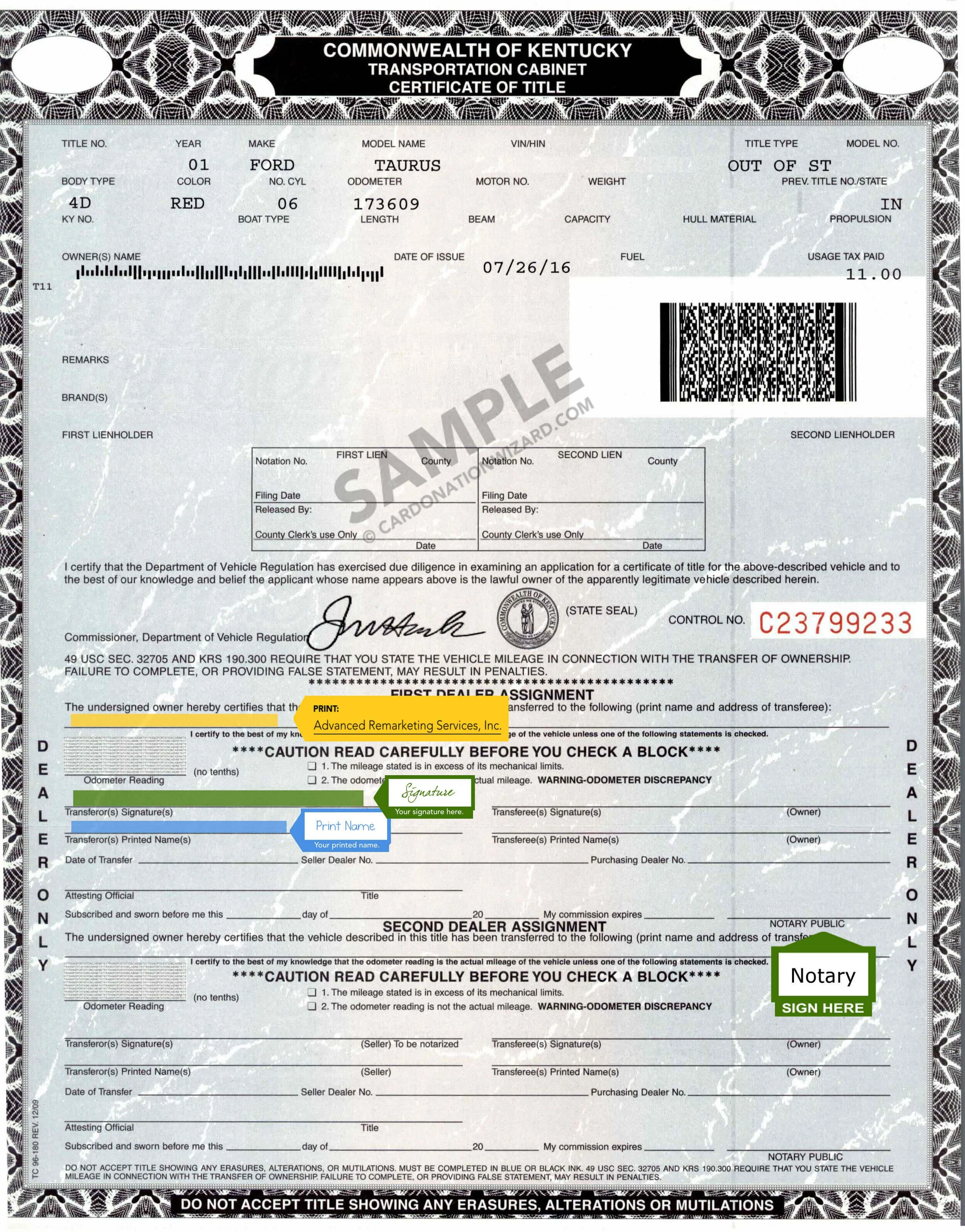What is Title Washing?
It’s an illegal act more common than car theft and very much illegal, yet most people have never heard of it. So what is title washing and why is it so serious?
Title washing is the act of obtaining an illegal title which hides details about a vehicle’s past. This can range from skipping an owner who didn’t sign the title to acquiring false documents to make a dirty title appear clean. Title washing results in a fraudulent car title.
Quick facts about title washing:
Federal law prohibits odometer tampering
Title washing is treated as a federal crime in the United States
In some areas as many as 1 in 45 cars may have a fraudulent title
The good news is that by simply doing sufficient research into the VIN, title status, and title history of a car you plan to buy, you can avoid becoming a victim of title washing altogether. But as you and I both know, it’s all too easy to unknowingly purchase a vehicle that hides a sinister past.
A Common Example: Flood Damaged Cars
Title washing can occur when a title is transferred to a state that doesn’t brand titles the same way. For example, a car that’s experienced flood damage in Texas could be moved to a state that doesn’t even account for flood damage on their titles. Suddenly, that mark would be removed from the title in the process.
Similarly, some states require accident damage to reach 100% of a vehicle’s value before they will issue a salvage title, while several other states leave the determination of a total loss up to the insurance companies. Titling a wrecked car in those latter states could allow someone to turn what would normally be a salvage title into a clean one, then resell that car to someone who has no idea they’ve been duped.
Loopholes like these have led to the unfortunate epidemic of title washing that we see today.
Let’s look at an infamous case of title washing and explore ways that you can avoid this issue as a car buyer.
A detailed VIN check can expose title washing. Get yours here.
The Case of Garrett Grable
In 2013, Mr. Garrett Grable of Painesville, Ohio found a 2007 Dodge Ram on the website of a car dealership located in Houston, Texas. A one-owner truck with 83,907 miles and no previous accidents, this Ram looked like the perfect buy. Mr. Grable called the dealer and arranged for it to be ready when his flight landed.
When he arrived in Houston, he found the Ram’s tires were bad. “No problem,” said the dealer: they comped him $900 and Mr. Grable drove home to Ohio on brand-new rubber.
It wasn’t until 2016, when he took the Ram to his local Ohio dealership for a trade-in evaluation, that he learned the truth about his truck. A Carfax report revealed that by 2010 his beloved Dodge Ram had already been through three previous owners, multiple accidents, and had covered over 170,000 miles – three years before he bought it with a stated 83,907 miles on the clock!
After nearly two years of legal action, it was determined that the dealership committed odometer tampering and title washing. After buying the truck at auction without a title, they obtained an illegal title and used it to sell the truck to Mr. Grable.
What happened to the dealership? They were slapped with $76,000 in legal fees and $52,500 in damages – even though Mr. Grable bought the car “as-is” from the dealership.
Read more about Mr. Grable’s case of title washing at The Houston Chronicle.
Why Would Someone Do This?
To make money, of course.
The unfortunate truth is that most people don’t investigate a vehicle’s history before buying it. Scam artists know this and they’re willing to take big risks to make a few bucks. We’ve all heard stories of people buying cars that supposedly “ran when parked” only to find out there was a valid (and often expensive) reason it was taken off the road.
What Could Title Washing Hide?
While washing a car title could hide all sorts of terrible things, it’s most commonly associated with natural disasters like floods and hurricanes. You may have heard about flood-damaged vehicles from Texas and Louisiana being sold with water damage covered up, and those stories are very true. Flood damage is one of the most popular issues covered up by title washing.
Problems title washing can hide include:
Theft history
Damage and repairs
Actual mileage
The true number of previous owners
Car title fraud is far too common, and when it comes to selling cars title washing is the ultimate deception.
How Common is Title Washing?
Data collected by IHS estimates that about 1 in every 325 used cars has experienced title washing. That means there are likely over 1 million cars with washed titles on American roads today. With the average age of used passenger cars increasing every year, the risk of buying a car with a washed title is here to stay.
Some places are at a higher risk than others.
That same data shows that where most states have a title washing average of 1 in every 400 to 500 cars, the worst states have a far higher incidence. In 2014 the worst states for title washing included Kansas (1 in ~211 vehicles), Oregon (1 in ~152), South Dakota (1 in ~141), and Virginia (1 in ~107). The worst state was Mississippi, where 1 in every 44.6 cars was the victim of a washed title.
That means the average Mississippi resident sees dozens of cars per day that have fraudulent titles.
Can a Car Be Licensed with a Washed Title?
Unfortunately, yes. Your local DMV office isn’t in the business of doing exhaustive title history checks. Titles can be washed or even forged to the point where the DMV won’t even notice – that means it’s up to you to defend yourself.
What Can I Do to Protect Myself?
If the example of Garrett Grable taught us anything, victims of title washing can recover damages and offenders can be brought to justice. Federal law prohibits odometer tampering and title washing is treated as a federal crime, so if you encounter a scammer don’t hesitate to call it in.
Obtain a Carfax report or a title history on any vehicle you purchase, no matter how good it looks on paper or how convincing the seller’s story may be.
One thing’s for sure – you’d rather catch a fraudulent title ahead of time. Licensing, registration, and taxes account for nearly 10% of the expenses you’ll face when buying a new or used car. Add to that the potential value depreciation which could result from a washed title, and it’s a no-brainer to spend some money on a vehicle history report to avoid overpaying for a vehicle with a washed title. Plus, who wants to go to court?
Running a VIN check and an accident report before you buy a car will give you evidence to base your decision on.
Dirt Legal Can Help
The experts at Dirt Legal specialize in replacing lost and stolen car titles. Check out our VIN Check Service to help you buy with confidence.
Have questions about our process? Contact us anytime.
We are not attorneys. This article is not legal advice.

















We have so many more vehicle purchasing options than we used to! All these choices may lead you to your dream vehicle, but they also might lead you to a cloned vehicle if you aren’t careful. Read on for shocking and true stories of this surprisingly simple scam tactic and how to avoid it when you are looking for your next ride.